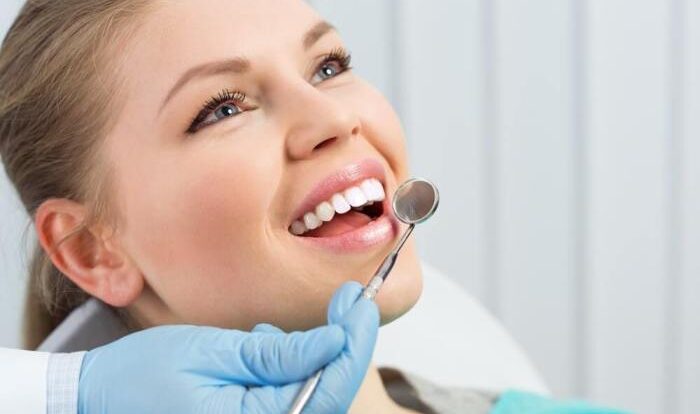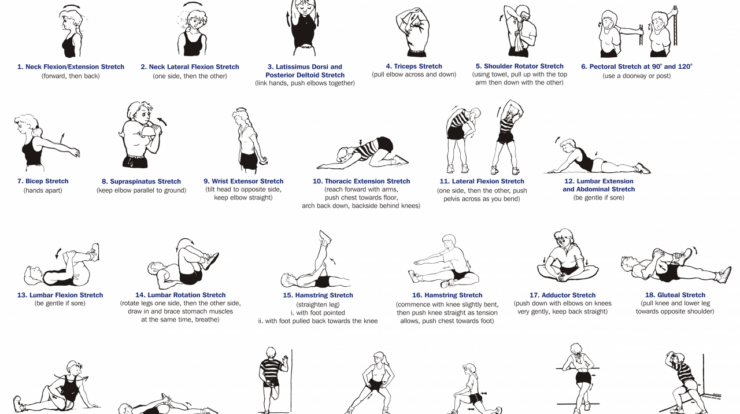
Discover how to cure gum disease without a dentist! We’ll explore natural remedies, proper oral hygiene techniques, and dietary considerations to help you maintain healthy gums.
Home Remedies for Gum Disease
Gum disease, also known as periodontal disease, is a common condition that affects the gums and supporting structures of the teeth. It can range from mild inflammation to severe infection, leading to tooth loss if left untreated. While professional dental care is essential for treating gum disease effectively, several home remedies can help alleviate symptoms and support oral health.
Saltwater Rinses
Saltwater rinses are a simple and effective way to reduce inflammation and kill bacteria in the mouth. Mix half a teaspoon of salt in a glass of warm water and rinse for 30 seconds, twice a day. Salt has antibacterial and antiseptic properties that help soothe sore gums and promote healing.
If you’re looking for ways to cure gum disease without breaking the bank, this article has got you covered. It provides a step-by-step guide on how to cure gum disease naturally, using ingredients you can find right in your kitchen.
You’ll learn about the importance of maintaining good oral hygiene, as well as how to identify and treat the symptoms of gum disease.
Tea Tree Oil
Tea tree oil is a natural antiseptic and antibacterial agent that can help fight gum disease. Dilute a few drops of tea tree oil in a carrier oil, such as coconut oil, and apply it to the affected area with a cotton swab.
Do not swallow tea tree oil, as it can be toxic.
Baking Soda
Baking soda is a mild abrasive that can help remove plaque and bacteria from the teeth and gums. Mix a teaspoon of baking soda with a little water to form a paste and apply it to the gums with a toothbrush.
Baking soda helps neutralize acids in the mouth and reduce inflammation.
Gum disease is a serious condition that can lead to tooth loss and other health problems. While it’s best to see a dentist for treatment, there are some things you can do at home to help cure gum disease. To learn more about how to cure gum disease without a dentist, check out this helpful guide . It provides step-by-step instructions and tips on how to treat gum disease naturally.
Consult a Healthcare Professional
While home remedies can provide temporary relief from gum disease symptoms, it’s crucial to consult a healthcare professional for proper diagnosis and treatment. Gum disease can be a sign of underlying health issues, and professional care is necessary to prevent further complications.
Oral Hygiene Practices

Maintaining proper oral hygiene is crucial for preventing and treating gum disease. Regular brushing, flossing, and using mouthwash are essential practices that help remove plaque and bacteria from your teeth and gums.
Brushing Techniques
- Use a soft-bristled toothbrush and fluoride toothpaste.
- Brush for at least two minutes, twice a day.
- Use a circular motion, covering all surfaces of your teeth, including the insides, outsides, and chewing surfaces.
- Be gentle and avoid brushing too hard, as this can damage your gums.
Flossing Techniques
- Use dental floss or a water flosser to remove plaque and food particles from between your teeth.
- Floss gently, moving the floss up and down along the sides of your teeth.
- Do not snap the floss or force it into your gums.
- Floss at least once a day, preferably before bed.
Mouthwash
- Use an antibacterial mouthwash to help kill bacteria and reduce plaque.
- Swish the mouthwash for at least 30 seconds, twice a day.
- Do not swallow the mouthwash.
Electric Toothbrushes and Water Flossers
- Electric toothbrushes can help remove more plaque and bacteria than manual toothbrushes.
- Water flossers can be more effective at removing plaque and food particles from between teeth than traditional floss.
- Consider using these tools to enhance your oral hygiene routine.
Dietary Considerations

Maintaining a healthy diet plays a crucial role in preventing and managing gum disease. The foods we consume directly impact the health of our oral microbiome, the community of bacteria that reside in our mouths. Certain dietary choices can promote gum health, while others can contribute to its deterioration.
Foods that Promote Gum Health
- Fruits and Vegetables:Rich in vitamins, minerals, and antioxidants, fruits and vegetables help strengthen the immune system, reduce inflammation, and protect against gum disease.
- Whole Grains:Whole grains provide fiber, which helps promote healthy digestion and reduce inflammation throughout the body, including the gums.
- Dairy Products:Dairy products contain calcium and vitamin D, essential nutrients for strong teeth and bones. They also help neutralize acids in the mouth that can erode tooth enamel and damage gums.
- Lean Protein:Lean protein sources, such as fish, poultry, and beans, provide amino acids that are essential for tissue repair and growth, including gum tissue.
- Green Tea:Green tea contains polyphenols, antioxidants that have anti-inflammatory and antibacterial properties, which can help protect against gum disease.
Foods to Avoid
- Sugary Drinks:Sugary drinks, including soda, juice, and sports drinks, feed the bacteria in the mouth that cause cavities and gum disease.
- Processed Foods:Processed foods are often high in sugar, unhealthy fats, and preservatives, which can contribute to inflammation and damage gum tissue.
- Smoking:Smoking damages the immune system and impairs blood flow to the gums, making them more susceptible to infection and disease.
Sample Meal Plan
Here is a sample meal plan that supports gum health:
Breakfast:
Curing gum disease without a dentist can be a challenge, but it’s possible with the right approach. Learn how to cure gum disease without a dentist and take control of your oral health. With a little effort, you can restore your gums to health and prevent further damage.
- Oatmeal with berries and nuts
- Yogurt with fruit and granola
- Scrambled eggs with whole-wheat toast
Lunch:
- Salad with grilled chicken, vegetables, and whole grains
- Sandwich on whole-wheat bread with lean protein, vegetables, and cheese
- Soup and sandwich
Dinner:
- Grilled salmon with roasted vegetables and brown rice
- Chicken stir-fry with vegetables and whole-wheat noodles
- Lentil soup with whole-wheat bread
Snacks:
- Fruits and vegetables
- Yogurt
- Nuts and seeds
Gum Disease Prevention

Gum disease is a preventable condition that can lead to serious health problems if left untreated. By following these tips, you can reduce your risk of developing gum disease and keep your smile healthy.
Risk Factors for Gum Disease
The following factors can increase your risk of developing gum disease:
- Poor oral hygiene
- Smoking
- Diabetes
- Weakened immune system
- Genetics
Reducing Your Risk of Gum Disease
There are a number of things you can do to reduce your risk of developing gum disease, including:
- Brush your teeth twice a day with a soft-bristled toothbrush and fluoride toothpaste.
- Floss your teeth once a day.
- Eat a healthy diet that is low in sugar and processed foods.
- Quit smoking.
- Control your blood sugar if you have diabetes.
- See your dentist regularly for checkups and cleanings.
The Importance of Regular Dental Checkups and Cleanings
Regular dental checkups and cleanings are essential for preventing gum disease. Your dentist can check your teeth and gums for signs of gum disease and clean your teeth to remove plaque and tartar.
Fluoride Treatments and Sealants
Fluoride treatments and sealants can help to prevent gum disease by strengthening your teeth and making them more resistant to decay.
Gum Disease Prevention Checklist
Here is a checklist you can use to help you prevent gum disease:
- Brush your teeth twice a day with a soft-bristled toothbrush and fluoride toothpaste.
- Floss your teeth once a day.
- Eat a healthy diet that is low in sugar and processed foods.
- Quit smoking.
- Control your blood sugar if you have diabetes.
- See your dentist regularly for checkups and cleanings.
- Get fluoride treatments and sealants as recommended by your dentist.
Alternative Therapies: How To Cure Gum Disease Without A Dentist

In addition to conventional treatments, alternative therapies may offer complementary approaches to managing gum disease. These therapies aim to support the body’s natural healing abilities and reduce inflammation. However, it’s crucial to consult a healthcare professional before using any alternative therapies.
Gum disease can be a real pain, but did you know that you might not need to see a dentist to get rid of it? That’s right, there are actually a few things you can do at home to cure gum disease without a dentist.
For more information on how to cure gum disease without a dentist, check out this helpful article: how to cure gum disease without a dentist . It’s got all the info you need to get your gums back in tip-top shape.
Some common alternative therapies for gum disease include:
Acupuncture, How to cure gum disease without a dentist
Acupuncture involves inserting thin needles into specific points on the body to stimulate the nervous system and promote healing. Studies suggest that acupuncture may reduce inflammation and pain associated with gum disease.
Herbal Remedies
Certain herbs, such as green tea, echinacea, and turmeric, possess anti-inflammatory and antimicrobial properties. They can be used in teas, supplements, or mouthwashes to support gum health.
Ozone Therapy
Ozone therapy involves exposing the affected area to ozone gas. Ozone has antibacterial and anti-inflammatory effects that may help reduce gum inflammation and infection.
Summary
By following these tips and consulting with a healthcare professional when necessary, you can effectively prevent and treat gum disease, ensuring a healthy and radiant smile.
Expert Answers
Can I cure gum disease without going to the dentist?
While home remedies and proper oral hygiene can alleviate symptoms, it’s crucial to consult a dentist for a proper diagnosis and treatment plan.
What are the best natural remedies for gum disease?
Saltwater rinses, tea tree oil, and baking soda have antibacterial and anti-inflammatory properties that can help reduce gum inflammation.
How often should I brush and floss my teeth?
Brush your teeth twice a day and floss once a day to remove plaque and bacteria that can cause gum disease.





